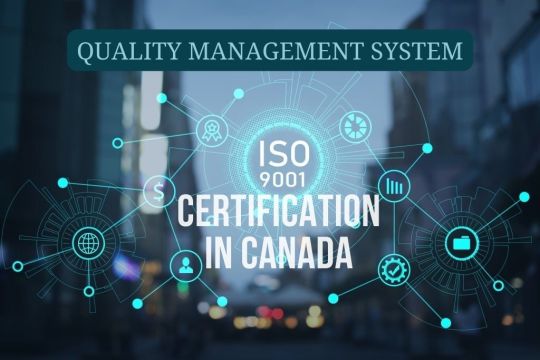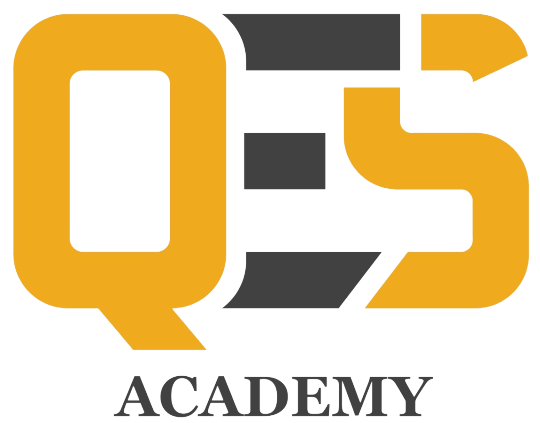#iso 14001 auditor training
Text
ISO 14001 stands for Environmental Management System. It gives a framework for organizations to effectively manage their environmental responsibilities and improve their environmental performance. By implementing ISO 14001, transportation companies enhance their performance to environmental sustainability, grow their reputation, adhere to regulatory requirements and decrease the environmental impact through systematic management and continual improvements.
#iso 14001#iso 14001 certifciation#ems certification#iso 14001 auditor training#online iso 14001 auditor training#iso 14001 auditor training online
0 notes
Link
ISO translated into common language - ISO Training courses Online Los Angeles
#R2 Certification Consulting#AS9100C Training courses#ISO 9001 Consulting#how to get iso 9001#ISO 9001 documentation#ISO 9001 online training#ISO 45001 Consultant in California#ISO 9001 Certification and Auditor Training#AS9100 certification consulting and training#ISO 14001 online training#ISO 9001 implementation training#ISO 9001 implementation consulting.
2 notes
·
View notes
Text
iso 14001 lead auditor training online
The Imperative of ISO 14001 Lead Auditor Training: Nurturing Environmental Excellence
Introduction:
In today's global landscape, environmental sustainability has emerged as a pivotal concern for businesses worldwide. Organizations are increasingly recognizing the need to adopt robust environmental management systems to mitigate their ecological footprint. Among the most renowned frameworks for environmental management is ISO 14001. However, ensuring compliance and optimizing environmental performance demands expertise. Hence, ISO 14001 Lead Auditor Training assumes paramount significance. This article delves into the essential aspects of such training, elucidating its importance and exploring its profound impact on fostering environmental stewardship.
Understanding ISO 14001:
ISO 14001 serves as the cornerstone for environmental management systems, providing a systematic approach to address environmental challenges. Lead auditors must possess a comprehensive understanding of its principles, requirements, and implementation strategies. Through rigorous training, professionals delve into the intricacies of ISO 14001, comprehending its structure, key clauses, and the significance of continual improvement. Moreover, they explore case studies and real-world scenarios, gaining insights into practical applications and best practices. Such foundational knowledge equips auditors to assess organizational compliance effectively and recommend tailored solutions for enhancing environmental performance.
Roles and Responsibilities of Lead Auditors:
Effective environmental management necessitates competent leadership and oversight. Lead auditors play a pivotal role in evaluating an organization's environmental management system's conformity with ISO 14001 standards. During training, participants delve into the core responsibilities of lead auditors, encompassing planning, conducting audits, and reporting findings. They learn to navigate the audit process proficiently, from initiating assessments to communicating audit results. Furthermore, emphasis is placed on cultivating strong communication and interpersonal skills to engage stakeholders and facilitate constructive dialogue on environmental objectives and targets.
Risk-Based Approach to Auditing:
In today's dynamic business environment, organizations face multifaceted environmental risks that necessitate proactive mitigation strategies. ISO 14001 Lead Auditor Training underscores the importance of adopting a risk-based approach to auditing. Participants learn to identify, assess, and prioritize environmental risks, tailoring audit protocols accordingly. By focusing on high-risk areas, auditors can provide targeted recommendations for enhancing environmental resilience and compliance. Moreover, training equips auditors with the tools and methodologies to conduct thorough risk assessments, incorporating factors such as regulatory requirements, operational processes, and stakeholder expectations.
Driving Continuous Improvement:
Sustainable environmental management is a journey of perpetual improvement. ISO 14001 Lead Auditor Training instills a culture of continuous enhancement by emphasizing the principles of Plan-Do-Check-Act (PDCA) and the pursuit of operational excellence. Auditors are trained to not only identify non-conformities but also to proactively identify opportunities for innovation and optimization. Through collaborative engagement with organizational stakeholders, lead auditors facilitate the development of actionable strategies to minimize environmental impact, conserve resources, and enhance overall sustainability performance.
Conclusion:
iso 14001 lead auditor training online In an era defined by escalating environmental concerns and regulatory scrutiny, ISO 14001 Lead Auditor Training emerges as a linchpin for nurturing environmental excellence within organizations. By equipping professionals with the requisite knowledge, skills, and competencies, such training empowers them to uphold the principles of environmental stewardship and drive meaningful change. As businesses strive to align with sustainable practices and demonstrate corporate responsibility, investing in ISO 14001 Lead Auditor Training becomes not only a strategic imperative but also a catalyst for fostering a greener, more resilient future.
0 notes
Text
How Would ISO 14001 Benefit Schools and Colleges?

The education sector plays a crucial role in shaping future generations, not just intellectually, but also environmentally. As climate concerns mount, schools and colleges face increasing pressure to reduce their ecological footprint. While many institutions have embraced sustainability initiatives, could implementing a structured framework like ISO 14001 take their efforts to the next level?
0 notes
Text
#iso certificate online#iso 27001 audit#iso certification#iso standard#iso valorant#iso 9001#iso consulting services#iso 14001 certification#iso 14001 audit#iso 14001 internal auditor training#iso 14001 documents
0 notes
Text
ISO 14001 Lead Auditor Training | CQI-IRCA Certified Course

QES Academy offers CQI-IRCA Certified ISO 14001 Lead Auditor Training. Register now & get a UTAP grant of up to 50% of the fee.
0 notes
Text
ISO 14001 Internal Auditor Training: Enhancing Environmental Management Systems
Introduction:
ISO 14001 is an internationally recognized standard for environmental management systems (EMS), providing a framework for organizations to establish and improve their environmental performance. One key element of maintaining ISO 14001 compliance is the internal audit process. This article explores the importance of ISO 14001 internal auditor training and outlines the key components of such training programs.
Understanding ISO 14001:
Overview of ISO 14001: ISO 14001 sets out the criteria for an environmental management system and helps organizations establish a systematic approach to environmental performance improvement. Compliance with this standard demonstrates an organization’s commitment to environmental responsibility.
Internal Auditing in ISO 14001: Internal audits play a vital role in evaluating the effectiveness of an organization’s EMS. Internal auditors are responsible for assessing whether the organization’s environmental management processes and activities align with ISO 14001 requirements.
Key Components of ISO 14001 Internal Auditor Training:
ISO 14001 Standard Overview: Training should begin with a comprehensive understanding of the ISO 14001 standard, including its structure, key clauses, and the intent behind each requirement. This foundational knowledge is essential for effective auditing.
Audit Principles and Techniques: Internal auditors need to grasp the principles and techniques of auditing, including planning and conducting audits, gathering evidence, and reporting findings. Emphasis should be placed on the importance of objectivity and impartiality.
Legal and Regulatory Compliance: A crucial aspect of ISO 14001 internal auditing is ensuring that an organization complies with applicable environmental laws and regulations. Training should cover the identification and assessment of legal requirements relevant to the organization’s activities.
Risk-Based Thinking: ISO 14001:2015 emphasizes a risk-based approach to environmental management. Internal auditors should be trained to identify and assess environmental risks and opportunities within the organization.
Communication Skills: Effective communication is fundamental to successful internal auditing. Training programs should focus on developing the skills needed to interview employees, communicate findings, and provide constructive feedback.
Documentation and Reporting: Internal auditors must be proficient in documenting audit activities and findings. Training should cover the preparation of audit reports, including non-conformities, opportunities for improvement, and recommendations.
Practical Training:
Mock Audits: Practical experience is crucial for internal auditors. Conducting mock audits within the organization allows auditors to apply their knowledge in a real-world context, identifying areas for improvement and fine-tuning their skills.
Role-Playing Exercises: Role-playing exercises simulate audit scenarios, enabling auditors to practice effective communication, conflict resolution, and decision-making in a controlled environment.
Conclusion:
ISO 14001 internal auditor training is a key element in ensuring the ongoing effectiveness of an organization’s environmental management system. By providing a solid understanding of the ISO 14001 standard, audit principles, and practical experience through exercises and simulations, organizations can empower internal auditors to contribute significantly to environmental sustainability and regulatory compliance.
0 notes
Text
Leading ISO 14001 Internal Auditor Training & Awareness Training Provider
ISO 14001 is the internationally recognized standard for Environmental Management Systems (EMS). It provides a framework for organizations to manage their environmental impact, minimize waste and pollution, and comply with environmental regulations. By implementing ISO 14001, organizations can identify and control their environmental risks, improve their environmental performance, and demonstrate a commitment to sustainability.
Our experienced ISO 14001 consultants can guide you through the implementation process, while our training courses provide the necessary skills and knowledge to maintain an effective environmental management system. We are committed to helping organizations of all sizes and sectors achieve ISO 14001 certification and contribute to a better future for our planet. Contact us today to learn more about our services. We offer a customized ISO 14001 training program on ISO 14001:2015 for.

ISO 14001 Implementation Requirements
The organization shall establish, document, implement, maintain and continually improve an EMS in accordance with the ISO 14001 requirements. The organization shall define and document the scope of its environmental management system.
The level of implementation of the environmental management system, the size of documentation and the resources required for it depend on a number of factors, such as the Environmental policy, scope of the system, the size of an organization and the nature of its activities, products and services.
#ISO 14001 consultants#ISO 14001 Certification consultants#ISO 14001 Certification#ISO 14001 Implementation#ISO 14001 Requirements#ISO 14001 Internal Auditor Training#ISO 14001 Training
0 notes
Text
https://www.aqts-usa.com/courses/iso-450012018-awareness-training/
course in Houston,Texas ISO 45001 is the first global Occupational Health and Safety Management System standard to replace OHSAS 18001. It will provide an opportunity to organizations around the globe to align their strategic direction with their health and safety management system thereby improving their occupational health and safety performance.
#ISO 9001:2015 Lead Auditor Training#14001:2015 Internal Auditor Training#ISO 9001:2015 Internal Auditor Training#Quality Circle TRAINING#Quality improvement through SPC training#Root Cause Analysis & Corrective Action Training#Lean Six Sigma Training#Document Control Training Course#Six Sigma Training Course
0 notes
Text
https://kbscertification.com/training/
KBS Certification | Lead Auditor Training | Lead Auditor Course
KBS provides training courses to help you demonstrate your competence and develop your career in Management system Auditing and associated areas. Our Personnel Certification programme will be helpful to the participants in gaining a confidence that they could perform well from their roles.
#Lead Auditor Training#ISO 22301:2019#Business Continuity Management System#ISO 9001:2015#Quality Management System#ISO 14001:2015#Environmental Management System#ISO 22000:2018#Food Safety Management System#ISO 50001:2018#Energy Management System
0 notes
Link
#14001:2015 Internal Auditor Training#ISO 9001:2015 Internal Auditor Training#Quality improvement through SPC training#Quality Circle TRAINING#Root Cause Analysis & Corrective Action Training#Lean Six Sigma Training#Document Control Training Course#Six Sigma Training Course
0 notes
Link

#ISO Certification Canada#ISO 9001 Certification Canada#ISO 14001 Certification Canada#ISO 45001 Certification Canada#ISO 27001 Certification canada#Lead Auditor Training Course In Canada#osscertification
0 notes
Text

IRCA Accredited ISO 14001 Lead Auditor Training helps to survey the standard prerequisites in an organization, The success of an environmental management system depends on commitment from all levels and this course helps the candidates to achieve the objectives of the organization competitively.
0 notes
Text
How Would ISO 14001 Benefit Schools and Colleges?

The education sector plays a crucial role in shaping future generations, not just intellectually, but also environmentally. As climate concerns mount, schools and colleges face increasing pressure to reduce their ecological footprint. While many institutions have embraced sustainability initiatives, could implementing a structured framework like ISO 14001 take their efforts to the next level?
0 notes
Text
Do you know the best ISO Certification consultant in qatar?
It is top certifier
https://www.topcertifier.com/iso-certification-qatar
ISO Certification Cost in Qatar
ISO Certification Cost in Qatar for a company varies based on its employee size and the complexity of the business nature. Also if the company is already operating at a specific standard with most of the good process and practices already set in place then the certification cost could drastically come down and make it very easy to achieve the ISO Certification.
In a few scenarios where a specific company is operating in all the 3 working shifts, the ISO Certification Cost may increase since the consultant as well as the auditor will need to engage employees in trainings and discussions in all the 3 working shifts.
Also if a company is operating in multiple locations then the certification cost is bound to increase as consultant and auditor will need to visit all these operating locations to ensure implementation and auditing is conducted in these locations.
TopCertifier conducts a free gap analysis for the companies to ensure ISO Certification Cost in Qatar is very affordable to the clients.

4 notes
·
View notes
Text

ISO 14001 Internal Auditor Training - QES Academy
ISO 14001 Internal Auditor Training - Improve your organization's environmental performance. Claim up to 50% course fee with a UTAP grant.
0 notes